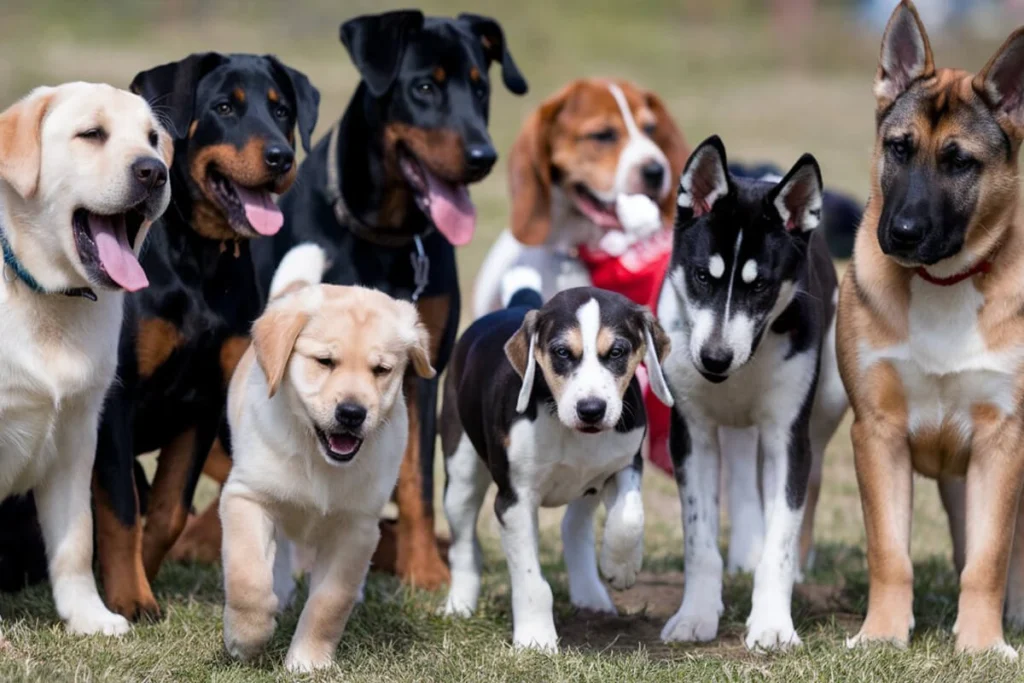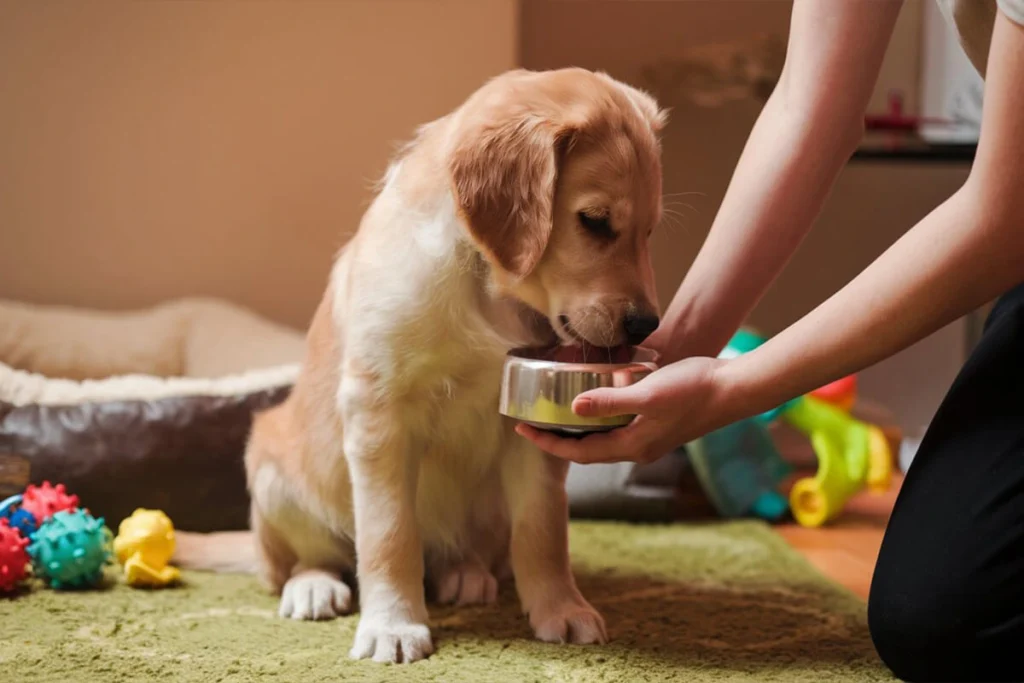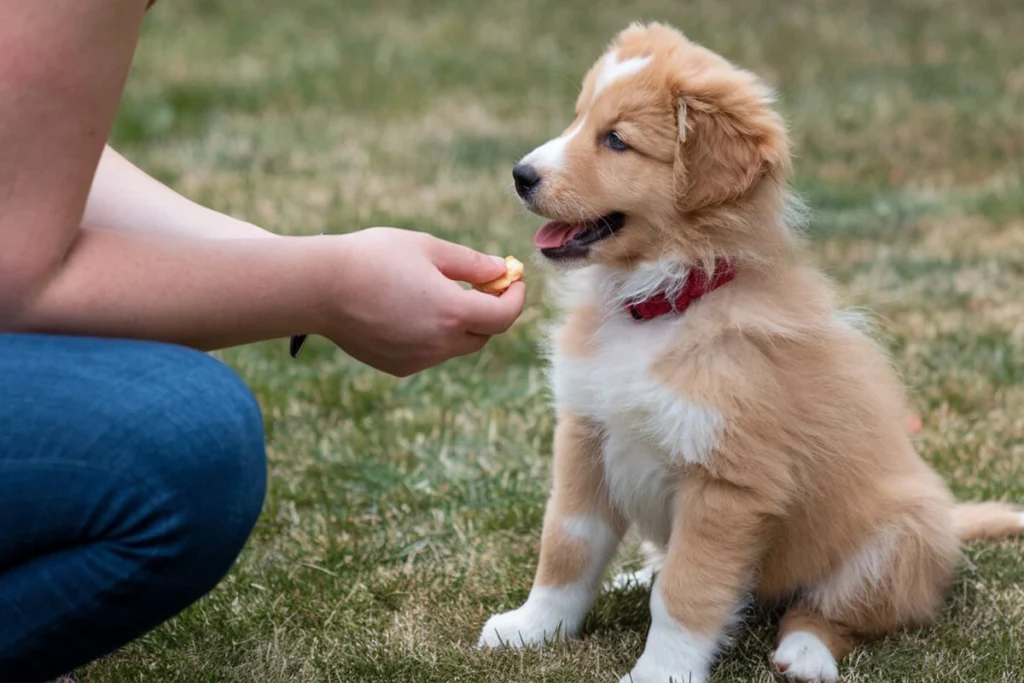A baby dog is called a puppy, and these tiny bundles of joy bring happiness, excitement, and a bit of chaos into any home. Puppies are not just adorable; they are also full of surprises. From their rapid growth to their unique behaviors, every stage of puppyhood is fascinating. Whether you’re a first-time dog parent or an experienced pet owner, understanding puppies helps you provide the best care possible.
In this blog post, we will explore fun facts about puppies, essential growth stages, and expert tips for raising a happy and healthy puppy. You’ll learn how to support their development, what to expect as they grow, and how to train them effectively. Get ready to discover everything you need to know about these lovable companions!
What Is a Baby Dog Called? Understanding Puppies
Explanation of Why a Baby Dog Is Called a Puppy
A baby dog is called a puppy because the term “puppy” specifically refers to young dogs that have not yet reached adulthood. Puppies go through critical stages of growth and development, making them very different from mature dogs. Their small size, high energy levels, and need for constant care set them apart. Unlike adult dogs, puppies require extra attention when it comes to feeding, training, and socialization.
Puppies also have unique physical and behavioral traits. Their baby teeth, also known as deciduous teeth, eventually fall out as they grow permanent ones. They rely heavily on their mother for warmth and nutrition in the first few weeks of life. Puppies also learn crucial social skills during this time, shaping their future behavior as adult dogs.
The Origin of the Word “Puppy” and Its Historical Usage
The word “puppy” comes from the French term “poupée,” which originally meant “doll” or “toy.” Over time, the word evolved into “pouppée” and was used to describe small, young dogs because of their playful and delicate nature. English speakers later adopted the word as “puppy” in the 16th century, and it became the common term for baby dogs.
In earlier centuries, people sometimes used the word “whelp” to refer to young dogs, especially in breeding and hunting communities. However, “puppy” became the preferred term, especially in households and among pet owners. Today, the word “puppy” is universally recognized and used to describe baby dogs, whether they belong to small or large breeds.
Differences Between a Puppy and an Adult Dog
A baby dog is called a puppy for a good reason—puppies are vastly different from adult dogs in terms of growth, behavior, and needs. One of the biggest differences is their rapid physical development. Puppies grow quickly, gaining muscle strength, improving coordination, and developing their senses within a few months. Their bones are still soft, making them more fragile compared to fully developed adult dogs.
Behaviorally, puppies are curious, playful, and highly energetic. They love to explore their surroundings, chew on objects (especially during teething), and seek attention from their owners. Adult dogs, on the other hand, tend to be more independent, calmer, and better trained. Puppies also require more frequent feeding, potty breaks, and training sessions to establish good habits.
Another key difference lies in their nutritional needs. Puppies need specially formulated food rich in protein, fat, and essential nutrients to support their rapid growth. Adult dogs, however, require a balanced diet that maintains their weight and overall health.
Understanding these differences helps dog parents provide the best care for their puppies, ensuring they grow into healthy, well-behaved adult dogs.
Fun Facts About Puppies That Will Surprise You
Puppies Are Born Blind and Deaf
A baby dog is called a puppy, and at birth, puppies enter the world in a fragile state. They are born unable to see or hear, and they need their mother to take care of them to stay alive. Their eyes remain sealed shut for the first 10 to 14 days, and their ear canals stay closed for about two weeks. This lack of vision and hearing forces puppies to rely on their sense of touch and smell to navigate their surroundings and locate their mother for warmth and milk.
As they grow, their senses gradually develop. By the time they reach three weeks of age, most puppies can see and hear, allowing them to become more interactive with their littermates and surroundings. This stage is crucial for early socialization and development.
They Have a Unique “Puppy Breath”
One of the most charming things about a baby dog, called a puppy, is its signature “puppy breath.” This sweet, mild scent is something many dog lovers find irresistible, but few people know why it exists. The exact cause of puppy breath isn’t entirely understood, but it likely results from a combination of their mother’s milk, a clean oral environment, and the absence of strong bacteria in their mouths. Since puppies don’t consume solid food in their earliest weeks, their breath remains fresh and odor-free.
As puppies grow and transition to solid food, their breath begins to change. The introduction of different nutrients, the development of adult teeth, and natural bacterial changes in the mouth all contribute to the eventual disappearance of that beloved puppy breath. Regular dental care and a proper diet help maintain fresh breath as they grow into adult dogs.
Each Breed Grows at a Different Pace
A baby dog is called a puppy, but not all puppies grow at the same rate. Small breeds, such as Chihuahuas and Pomeranians, reach maturity much faster than larger breeds like Great Danes or Saint Bernards. Small dogs may be fully grown by 9 to 12 months, while giant breeds can take up to two years to reach full size.

The rate of growth also affects development milestones. Larger breeds tend to go through longer teething periods and require more time for their bones and joints to strengthen properly. Smaller breeds may reach social and behavioral maturity faster, but they can also be more prone to small dog syndrome if not trained properly. Understanding a puppy’s breed-specific growth patterns helps dog parents provide the right nutrition, exercise, and care at each stage.
Puppies Sleep Up to 20 Hours a Day
A baby dog is called a puppy, and like human infants, puppies spend most of their early days sleeping. Newborn puppies can sleep up to 20 hours a day, and even as they grow older, they still require a lot of rest to support their rapid physical and mental development. Sleep plays a crucial role in brain function, muscle growth, and immune system support.
During sleep, puppies process the new experiences and lessons they’ve encountered while awake. Proper rest helps them absorb training, develop coordination, and regulate their energy levels. Lack of sleep can lead to cranky, overly energetic puppies that struggle to focus during training sessions. Dog parents should ensure their puppy has a quiet, comfortable space to rest and avoid excessive stimulation that could disrupt their sleep cycle.
Puppy Growth Stages & Development Milestones
Neonatal Stage (0-2 Weeks)
A baby dog is called a puppy, and in the neonatal stage, puppies are entirely dependent on their mother for survival. During this period, they are born blind, deaf, and unable to regulate their body temperature. Their primary activities include nursing, sleeping, and seeking warmth from their mother and littermates. Their sense of touch and smell help them navigate their surroundings, but they remain helpless and vulnerable.
During these first two weeks, puppies experience rapid physical development. Their tiny bodies grow quickly, and they spend most of their time feeding to gain strength. Their mother provides essential nutrients through her milk, which contains antibodies that help protect them from diseases. At this stage, handling should be minimal to avoid stressing the puppies, but gentle interactions can help them get accustomed to human touch.
Transitional Stage (2-4 Weeks)
A baby dog is called a puppy, and during the transitional stage, puppies begin to experience significant changes. Their eyes start to open between 10 to 14 days after birth, and their ears follow shortly after. As their vision and hearing develop, they become more aware of their surroundings and start interacting with their littermates.

This is also the stage where puppies begin to stand and take their first wobbly steps. They start to explore their environment, engage in gentle play, and even attempt their first small barks. Their baby teeth begin to emerge, which prepares them for the transition to solid food in the coming weeks. Dog parents and breeders can introduce light handling at this stage to help puppies become familiar with human touch and begin early socialization.
Socialization Stage (4-12 Weeks)
A baby dog is called a puppy, and the socialization stage is one of the most critical phases of their development. Between 4 and 12 weeks, puppies become highly curious, playful, and eager to explore the world around them. They learn vital social skills from their littermates, such as bite inhibition, play behavior, and communication.
At this stage, responsible dog parents should introduce their puppy to new experiences, people, and environments. Meeting new people and experiences helps puppies become happy and confident adult dogs. Exposure to different sights, sounds, and surfaces builds resilience and reduces the likelihood of fear-based behavior. Basic training, including potty training and simple commands like “sit” and “stay,” should also begin during this period. Puppies receive their first vaccinations during this time, ensuring they stay protected from diseases as they interact with the world.
Juvenile Stage (3-6 Months)
A baby dog is called a puppy, and during the juvenile stage, puppies start to show more independence and confidence. Their energy levels increase, and they develop stronger muscles and coordination. This is the stage where puppies begin teething, which leads to excessive chewing. Providing appropriate chew toys helps prevent destructive behavior and soothes sore gums.
Training becomes even more important in this stage, as puppies test boundaries and develop their long-term behaviors. Consistency in commands, socialization, and routine helps shape them into well-mannered adult dogs. Puppies also continue growing rapidly, with their breed determining how long this stage lasts. Small breeds may already be approaching adulthood, while larger breeds still have significant growth ahead.
Dog parents should continue reinforcing good habits, maintaining regular vet checkups, and ensuring their puppy receives proper nutrition. The juvenile stage is a crucial time for shaping a puppy’s personality, so patience, guidance, and positive reinforcement play a key role in their development.
Expert Puppy Care Tips for Happy & Healthy Dogs
Proper Nutrition
A baby dog is called a puppy, and proper nutrition is essential for its rapid growth and overall health. Puppies require a diet rich in high-quality protein, healthy fats, and essential vitamins to support their developing muscles, bones, and immune system. Unlike adult dogs, puppies have higher energy needs, so feeding them specially formulated puppy food ensures they receive the right balance of nutrients.
During the first few weeks, puppies rely entirely on their mother’s milk for nourishment. By around four weeks old, they begin transitioning to solid food through a process called weaning. At this stage, soft, moistened kibble or specially designed puppy wet food helps make the transition smoother. Feeding schedules should be frequent—young puppies need about four meals a day, while older puppies (3-6 months) can gradually shift to three meals a day. By six months, most puppies can transition to two meals a day, following a consistent routine.

Providing fresh water at all times is equally important, as hydration supports digestion and overall well-being. Dog parents should also avoid feeding puppies human food, as some ingredients can be toxic to dogs. Consulting a veterinarian about the best food choices for a puppy’s specific breed and size ensures they grow into a strong, healthy adult dog.
Vaccination & Vet Visits
A baby dog is called a puppy, and just like human babies, puppies need vaccinations to build immunity and protect them from dangerous diseases. Newborn puppies receive antibodies from their mother’s milk, but this temporary immunity fades after a few weeks. To keep them safe, veterinarians recommend a vaccination schedule starting around 6 to 8 weeks of age.
Core vaccines include protection against distemper, parvovirus, adenovirus, and rabies. Depending on the puppy’s environment and lifestyle, non-core vaccines, such as those for Bordetella (kennel cough) or Lyme disease, may also be recommended. A typical vaccination schedule looks like this:
- 6-8 weeks: First round of vaccinations (distemper, parvovirus)
- 10-12 weeks: Booster shots and optional non-core vaccines
- 14-16 weeks: Final core vaccinations, including rabies
- Annual boosters: Continued protection into adulthood
Regular vet visits also help monitor a puppy’s growth, check for any health concerns, and provide deworming treatments to prevent parasites. Early veterinary care ensures a puppy stays healthy and receives the best possible start in life.
Socialization & Training
A baby dog is called a puppy, and proper socialization and training shape its behavior for the rest of its life. The early weeks, especially between 4 and 12 weeks, are a critical period for socialization. Exposing puppies to different people, sounds, environments, and other animals helps them develop confidence and reduces fear-based behaviors later in life.
Socialization should include positive experiences with household noises, outdoor environments, and gentle interactions with friendly dogs and people. Puppy socialization classes provide structured learning and exposure to new situations in a controlled setting.
Training should also begin early, focusing on basic commands such as “sit,” “stay,” and “come.” Positive reinforcement, using treats and praise, helps puppies learn quickly and strengthens the bond between dog and owner. House training should also start as soon as the puppy arrives home, using a consistent schedule and crate training techniques to reinforce good potty habits.
A well-socialized and trained puppy grows into a well-behaved adult dog, making early efforts in this area essential for long-term success.
Teething Solutions
A baby dog is called a puppy, and teething is one of the most challenging phases for both puppies and their owners. Around 3 to 4 weeks of age, a puppy’s baby teeth begin to emerge. By the time they are 12 to 16 weeks old, they start losing those baby teeth as their permanent teeth come in. This process continues until about 6 months of age, and during this time, puppies experience discomfort and an urge to chew on everything.
To ease teething discomfort, dog parents should provide appropriate chew toys made from rubber or soft materials. Frozen carrots, ice cubes, or chilled teething toys can help soothe sore gums. Avoid giving puppies household items to chew on, as this can create bad habits and lead to destructive behavior.
Redirecting a puppy’s chewing instinct to safe, designated toys prevents damage to furniture, shoes, and other household items. If a puppy starts chewing on something inappropriate, calmly redirect them to a chew toy and praise them when they use it. Patience and consistency during this stage help puppies develop healthy chewing habits and protect their developing teeth.
Puppy Training Basics Every Dog Parent Should Know
House Training Essentials
A baby dog is called a puppy, and one of the first challenges for new dog parents is house training. Puppies have small bladders and limited control over their bodily functions, so establishing a consistent potty routine is essential. Successful house training requires patience, consistency, and positive reinforcement.
To begin, set up a designated potty area outside or use puppy pads indoors for very young puppies. Take the puppy to the potty spot frequently—after waking up, eating, drinking, playing, and before bedtime. Puppies thrive on routine, so taking them out at the same times each day helps them learn faster.

Crate training is a valuable tool for house training because dogs naturally avoid soiling their sleeping areas. A properly sized crate provides a safe space and encourages puppies to hold their bladder until they are taken outside. If accidents happen, clean the area thoroughly with an enzymatic cleaner to prevent the scent from attracting the puppy back to the same spot.
With consistency and positive reinforcement, most puppies learn house training basics within a few weeks, though smaller breeds may take longer due to their tiny bladders.
Basic Commands
A baby dog is called a puppy, and teaching basic commands early helps establish good behavior and communication between the puppy and its owner. The most important commands to start with include:
- Sit – Helps with impulse control and teaches the puppy to wait calmly.
- Stay – Reinforces patience and prevents running into dangerous situations.
- Come – Ensures the puppy returns when called, improving safety and responsiveness.
- Leave it – Stops the puppy from picking up dangerous or inappropriate items.
- Down – Encourages calm behavior and prevents jumping on people.
Training sessions should be short (5-10 minutes) and repeated several times a day to maintain the puppy’s attention. Using treats and praise makes learning fun and encourages positive associations with training. Mastering basic commands sets the foundation for more advanced training as the puppy grows.
Positive Reinforcement
A baby dog is called a puppy, and the best way to train a puppy is through positive reinforcement. This way of teaching or guiding people rewards them for doing positive things instead of punishing them for making mistakes.. When a puppy follows a command, uses the potty correctly, or behaves well, rewarding them with treats, praise, or playtime strengthens the behavior.
Timing is crucial—rewards should be given immediately after the desired action so the puppy understands what they did right. Consistency is also key, as mixed signals can confuse a puppy and slow progress.
Avoid harsh corrections or punishment, as these can create fear, anxiety, and mistrust. Puppies learn best in a supportive, encouraging environment where they feel safe to make mistakes and try again. Positive reinforcement builds a strong bond between dog parents and their puppies while making training an enjoyable experience.
Common Mistakes to Avoid
A baby dog is called a puppy, and while training, many new dog parents unintentionally make mistakes that can slow progress or create bad habits. Some of the most common mistakes include:
- Inconsistency – Changing rules or routines confuses puppies. If jumping on people isn’t allowed, everyone in the household must enforce the rule.
- Using punishment-based training – Yelling or scolding can make a puppy fearful and less responsive. Instead of punishing mistakes, redirect behavior and reward good actions.
- Skipping socialization – Puppies need exposure to different environments, people, and other animals to develop confidence. Lack of socialization can lead to fear and aggression later in life.
- Expecting results too quickly – Puppies take time to learn. Repetition and patience are necessary for successful training.
By avoiding these mistakes and focusing on positive, consistent training methods, dog parents can help their puppies grow into well-mannered, happy adult dogs.
Conclusion
A baby dog is called a puppy, and raising a puppy comes with exciting moments, challenges, and responsibilities. Understanding a puppy’s growth stages, unique traits, and essential care needs helps dog parents provide the best possible start in life. Puppies grow rapidly, developing from helpless newborns into energetic, curious companions who require proper nutrition, socialization, and consistent training.
Caring for a puppy involves more than just providing food and shelter. Proper veterinary care, including vaccinations and regular checkups, protects a puppy from illnesses and ensures long-term health. Socialization plays a crucial role in shaping a puppy’s personality, helping them become well-adjusted, confident adult dogs. Training, especially using positive reinforcement, builds trust and strengthens the bond between the puppy and its owner. Teaching basic commands and maintaining a consistent routine help prevent behavioral issues and set the foundation for a well-behaved dog.
House training and teething can be challenging phases, but patience and the right approach make the process smoother. Puppies thrive on structure, so establishing clear rules and offering appropriate chew toys prevent destructive habits. Every puppy is unique, and their breed, size, and temperament influence their growth rate and care needs.
A baby dog is called a puppy, and those early months lay the foundation for a lifetime of companionship. Providing love, guidance, and proper care ensures a puppy grows into a happy, healthy, and well-mannered adult dog. Embracing the joys and challenges of puppyhood creates an unbreakable bond, making the journey of raising a puppy incredibly rewarding.
See The Key Differences Between Puppies vs Kittens In this Article.
To Learn more about Dogs and breeds, you can check This!
Find Some Amazing stuff for your Dog On Pet MD Official
